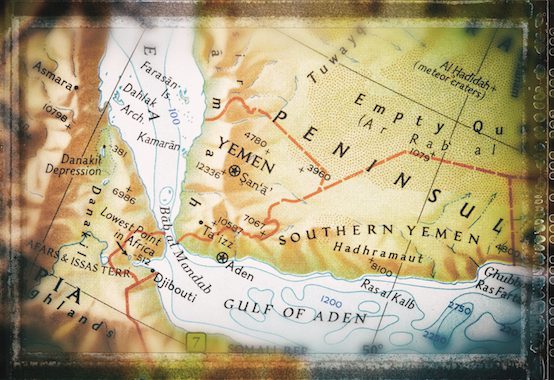The (Mostly) Ignored War on Yemen

The New York Times reports on the harm done to Yemeni civilians by the Saudi-led campaign. Among other things, the report notes that the coalition is responsible for causing most of the civilian victims in the war:
The majority of civilians have been killed by coalition warplanes, often dropping American munitions ranging from 250 to 2,000 pounds. There are no comprehensive tallies of the deaths. But the United Nations Human Rights Commissioner said on Friday that of 1,527 civilians who died between the start of the Saudi offensive and June 30, at least 941 people were killed by airstrikes.
The war on Yemen has recently been receiving a bit more coverage than in previous months. BBC Newsnight broadcast some excellent reports on the conflict at the end of last week, and The Economist has published a decent article on the war in this week’s issue. The coverage is damning for Saudi Arabia and its allies, which is as it should be, but the war continues to go mostly unnoticed.
Yemen is being called the “forgotten war.” That is somewhat inaccurate, since that implies that there was a time when it used to be widely known and has only later been forgotten. It is the ignored war, the war about which Western publics know little and care less, the war that some Western governments enable with military support without ever telling their citizens why they are doing it. It is not surprising that the Saudis and their allies pretend that they aren’t killing hundreds of Yemeni civilians with their indiscriminate attacks, but what is more remarkable is that they rarely have to repeat those lies because there is so little scrutiny or criticism of their actions in Western capitals. Were it not for the important work of human rights organizations, aid workers, and journalists documenting the Saudi-led coalition’s crimes in Yemen, there would be almost no one calling the Saudis and their allies to account for what they have been and still are doing to Yemeni civilians.
The Times article describes some of what the Saudis are doing:
What began as a Saudi-led aerial campaign against the Houthis, the rebel militia movement that forced Yemen’s government from power, has become so broad and vicious that critics accuse the coalition of collectively punishing people living in areas under Houthi control.
The Saudi-led coalition has been treating the whole of Saada province as a military target for months, so much so that residents “joke grimly that the coalition has run out of buildings to hit.” As terrible as the bombing campaign’s indiscriminate attacks are, it is the blockade that is doing the greater, less visible harm to the entire country. The Economist‘s article also mentions some of the damage that is being done:
Aid workers fret that their warnings of impending tragedy are falling on deaf ears. Owing to the coalition’s embargo, designed to stop Iran sending supplies to the Houthis, only 20% of the usual number of ships are arriving in Aden, for a nation that even before the war relied almost entirely on imported food and fuel. Some medical supplies have run out completely. Yemen could still be brought back from the brink. But increasingly it looks as if the opportunity to do so will be lost.
The latest report is that Hadi’s government has withdrawn from U.N.-sponsored talks and has approved a new offensive. Once again, the war on Yemen is set to escalate with the endorsement of its so-called government at the expense of its people.
Comments